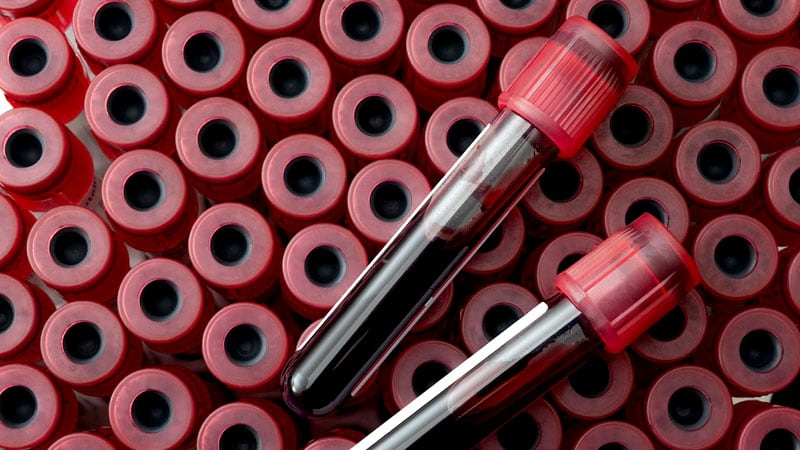TOPLINE:
Treatment with adalimumab improves anemia, thrombocytosis, and leukocytosis in patients with hidradenitis suppurativa (HS), in clinical responders and nonresponders.
METHODOLOGY:
- HS is a chronic inflammatory skin condition characterized by a high inflammatory burden and hematologic abnormalities such as anemia, leukocytosis, and thrombocytosis. Immunomodulatory therapy was previously found to improve hematologic abnormalities in a small cohort study.
- To evaluate whether adalimumab therapy was associated with clinical improvement and reductions in hematologic abnormalities, a post hoc analysis of two phase 3 randomized controlled trials of adalimumab, a tumor necrosis factor blocker, evaluated 633 patients with moderate to severe HS, randomized to receive 40-mg adalimumab weekly or placebo for 12 weeks.
- Researchers identified 252 patients in the studies with at least one hematologic abnormality (anemia, thrombocytosis, or leukocytosis) at baseline and divided them into four groups based on their treatment assignment and HS Clinical Response (HiSCR) status at 12 weeks: Adalimumab responders (49) and nonresponders (74) and placebo responders (30) and nonresponders (99).
TAKEAWAY:
- Among the 123 patients who received adalimumab, including nonresponders, significant improvements were observed in mean changes in hemoglobin levels (0.37 g/dL), platelet count (−34.6 × 103/μL), and white blood cell (WBC) count (−1152.66/μL) (P < .001 for all). Those on placebo did not have significant improvements in these three parameters.
- Adalimumab responders also demonstrated significant improvements in mean hemoglobin levels (0.72 g/dL), platelet count (−42.2 × 103/μL), and WBC count (−1572.34/μL) (P < .001 for all). The association between clinical response with adalimumab and degree of improvement in hemoglobin was borderline significant.
- Adalimumab responders had higher odds for resolution of anemia (53.3%) than adalimumab nonresponders (20.8%; P = .04) and placebo nonresponders (16.7%; P = .004).
IN PRACTICE:
“Adalimumab, regardless of HiSCR responder status, was associated with improvements in common hematologic abnormalities,” the authors wrote, adding that “these findings highlight the high inflammatory load in patients with HS and the frequent occurrence of inflammation-related dyscrasias, which may warrant aggressive management.”
SOURCE:
This study was led by Simon J. Gunter, MPhil, Harvard Medical School, Boston. It was published online on May 8, 2024, in JAMA Dermatology.
LIMITATIONS:
This study was limited by its sample size, and more research is needed to validate the generalizability of the results.
DISCLOSURES:
This study was supported by Harvard Catalyst Clinical and Translational Science Center (National Center for Advancing Translational Sciences and National Institutes of Health) and financial contributions from Harvard University and its affiliated academic healthcare centers. Four authors reported receiving personal fees and grants outside this work. No other disclosures were reported by the authors.
